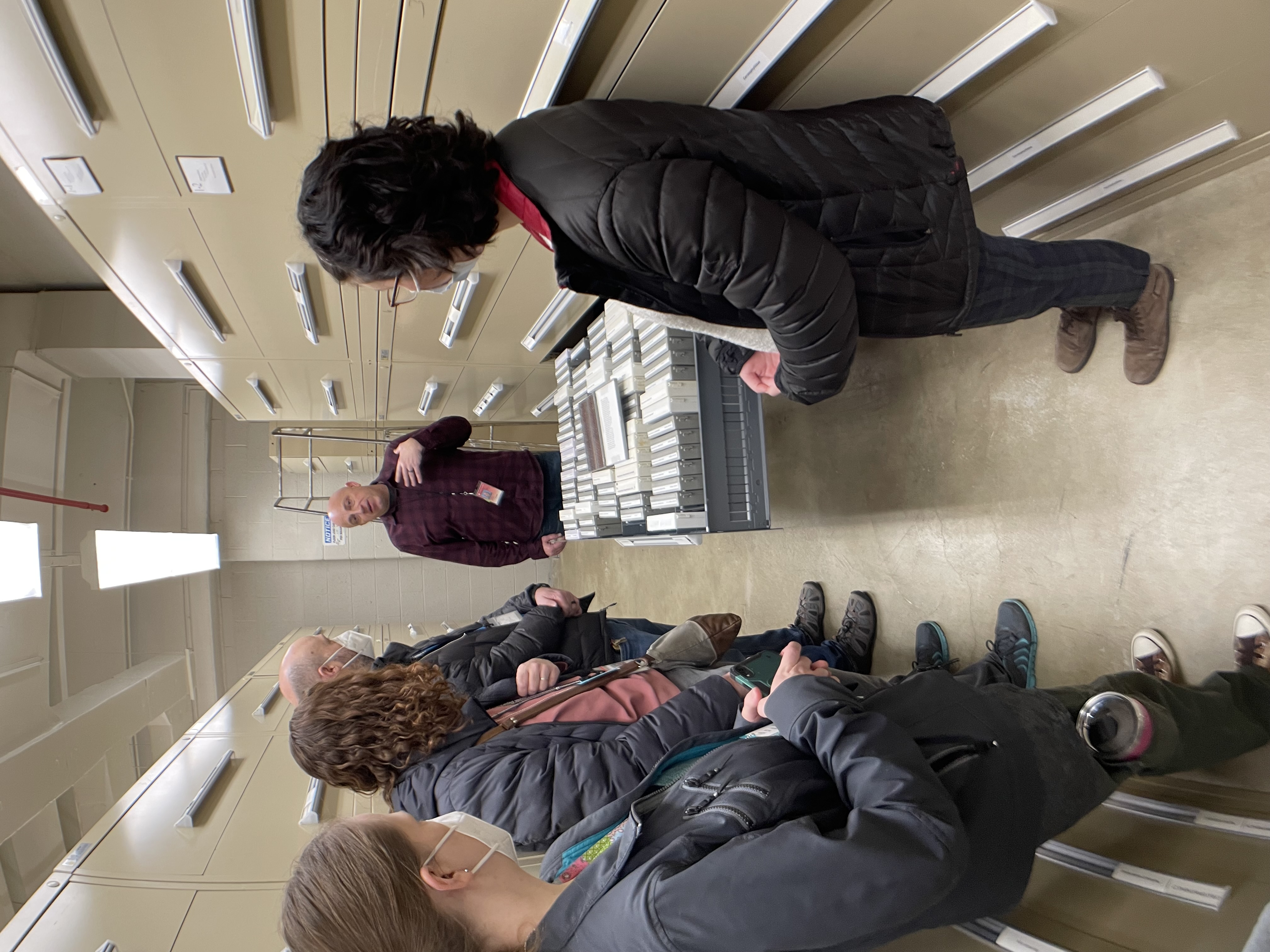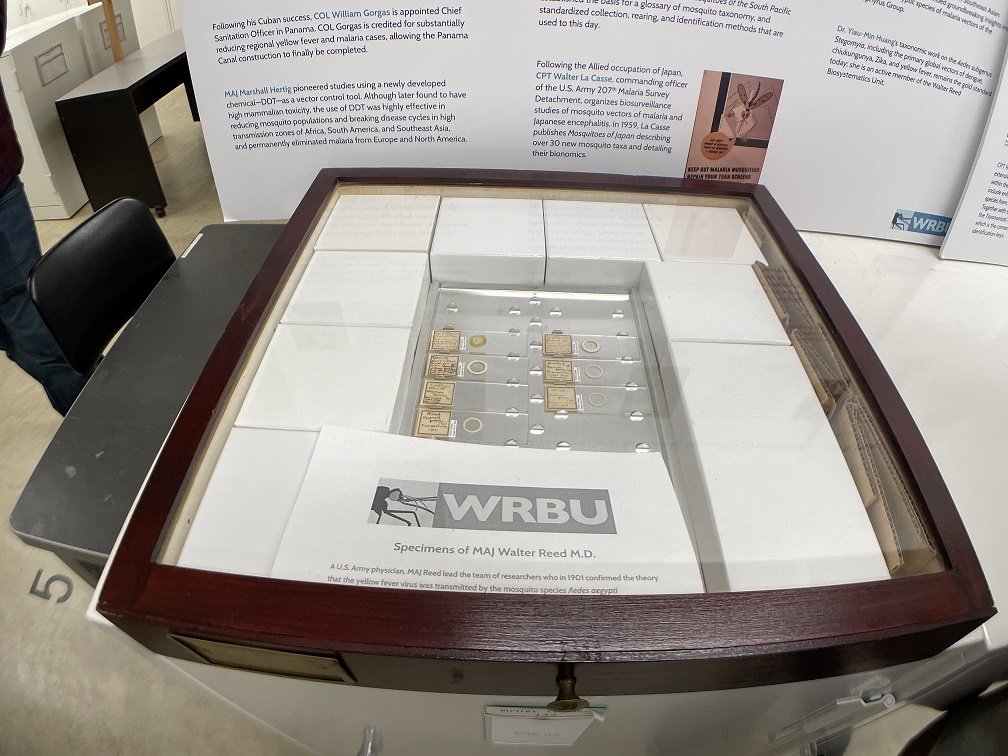- xlschwa's Blog
- Log in to post comments

The Health Department’s Disease Carrying Insect Program, an Environmental Health team who aims to protect the county from vector-borne diseases spread by mosquitoes and ticks, recently donated mosquito specimens collected from over 60 locations across the Fairfax Health District to the Walter Reed Biosystematics Unit (WRBU) National Insect Collections. The WRBU is a US Army organization that conducts laboratory and field research on medically important arthropods in support of disease prevention and control strategies that impact members of the U.S. military.
The team provided 370 pristine specimens representing 29 different mosquito species collected in Fairfax County, the City of Fairfax, and the City of Falls Church. Both immature and adult mosquitoes were submitted. These insects are now part of the largest and most comprehensive mosquito collection in the world, where over 1.5 million unique specimens are maintained by the WRBU.
“It’s exciting be contributing to the larger body of scientific knowledge of mosquitoes in this way--for generations to come, researchers from across the country and the world will utilize the specimens collected by our team here at the Fairfax County Health Department,” said Josh Smith, supervisor of the Disease Carrying Insects Program. “We continue to look for opportunities like this to connect with research and will also seek out ways to incorporate novel strategies into our operations so that we can make an impact on vectors and vector-borne disease transmission in our community.”

Members of the Fairfax County environmental health team traveled to the Smithsonian Institution’s Museum Support Center in Suitland, MD, where they provided the specimens, toured the facility, and met entomology experts. They also saw original mosquito specimens collected by Major Walter Reed, M.D. As a U.S. Army physician, MAJ Reed led the team of researchers who in 1901 confirmed the theory that the yellow fever virus was transmitted by the mosquito species Aedes aegypti.
The Fairfax team intends to continue contributing to the program.
Learn more about the Fairfax County Health Department’s Disease Carrying Insects Program.

